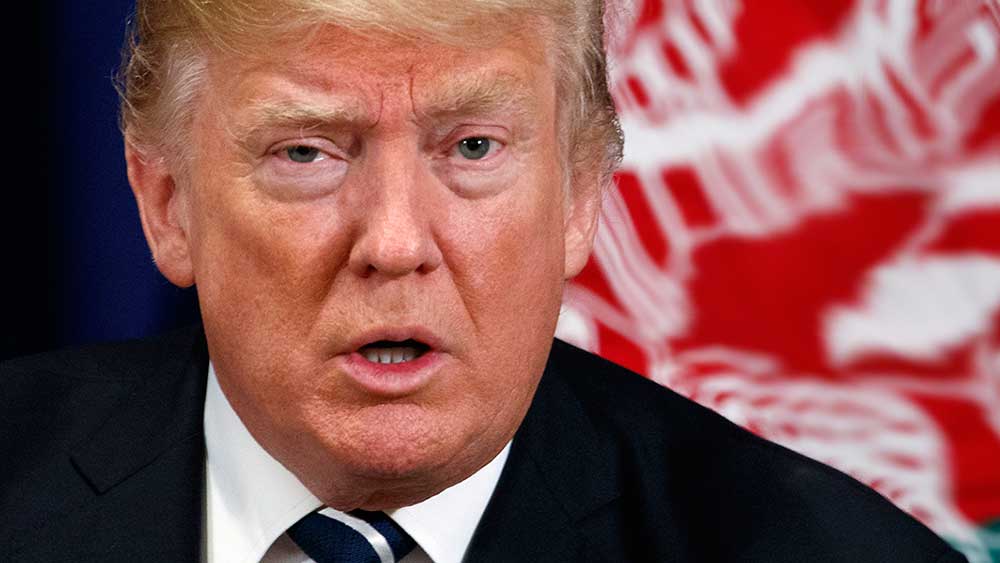Just when it looked like the Trump agenda might be getting back on track, Arizona Sen. John McCain may have done more damage than most people realize.
In the coming week, Congress was expected to take one more shot at repealing ObamaCare as Republicans release a more detailed and unified vision of where tax reform is going.
Now, after McCain's rejection of the last-ditch TrumpCare effort — the Graham-Cassidy bill — it looks like ObamaCare is here to stay and the path to tax reform just got a lot more treacherous.
TrumpCare's demise could be bad news for the likes of Apple (AAPL), which would benefit from a low rate for repatriating its $260 billion in profits held overseas. Shares of Apple faltered in the past week amid light crowds for the iPhone 8. While few, if any, analysts think anything close to the 15% corporate tax rate Trump has eyed is feasible, tax reform still holds big potential rewards for companies like CVS Health (CVS) and Southwest Airlines (LUV) that pay high U.S. tax rates and earn most of their money domestically.
Advertisement
Congress has until Sept. 30 to pass TrumpCare using a filibuster-proof budget reconciliation procedure that expires at the end of the fiscal year. In theory, Republicans could just start the process over in fiscal 2018, but that's seen as unlikely because the GOP can only use reconciliation once per fiscal year, and the 2018 budget resolution is needed to accommodate tax reform. Probably the fastest way to sink tax cuts would be to attach them to the political anchor known as ObamaCare repeal.
So why does the death of TrumpCare matter if Republicans will aim to pass tax cuts by themselves?
The answer has everything to do with budget aesthetics and the divide between GOP moderates and conservatives over appropriate spending levels.
In that regard, consider how much of a difference it would have made to have a running start toward deficit reduction courtesy of TrumpCare. Independent estimates suggest that the latest bill from GOP Sens. Lindsey Graham and Bill Cassidy would have cut about $200 billion in federal health outlays from 2020-2026.
On top of that, there's a Graham-Cassidy provision that left many wonks scratching their heads. Instead of continuing to gradually curb the health funds to states in place of ObamaCare, Graham-Cassidy would eliminate that funding starting in 2027, cutting spending by about $230 billion in that single year on top of nearly $50 billion in Medicaid cuts, according to Avalere Health.
IBD'S TAKE: Despite a hawkish Federal Reserve and saber-rattling North Korea, the stock market has been enjoying a strong month, and IBD readers were ready. On Aug. 22, IBD shifted its market trend gauge to "confirmed uptrend" from "uptrend under pressure," the equivalent of a flashing yellow light turning green. Read IBD's The Big Picture column each day to stay on top of the market direction, a key indicator that lets you know when you can be aggressive and when you should move to the sidelines.

While no one sees such a sudden and drastic cut as credible, the appearance of such a reduction might take pressure off the GOP to find other spending cuts. Without those cuts, the risk is that it will look like Republicans, far from being fiscally disciplined, are blowing up the deficit and debt.
The failure to repeal ObamaCare looks even more consequential for tax reform after President Trump and top Democrats Chuck Schumer and Nancy Pelosi agreed on a deal to keep the government funded and hike the debt ceiling through Dec. 8. Come December, it's hard to imagine that Democrats will agree to grease the skids for GOP tax cuts that are coming down the pike.
The upshot is that Republicans, who have never been able to summon enough votes to keep the government operating without relying on Democrats, may have to do so to keep tax reform moving forward. After the deal between Trump and Democrats, Goldman Sachs downgraded the odds of a 2018 tax cut to 40%. Goldman cited the possibility that the next government funding deal will collide with tax reform, along with a hefty federal bill for hurricane recovery.
McCain Pulls Plug On GOP Health Bill; Insurers, Hospitals Rally
Trump's Debt Deal With Democrats Sinks Tax-Cut Hopes: Goldman Sachs
Stocks To Buy And Watch: Top IPOs, Big And Small Caps, Growth Stocks